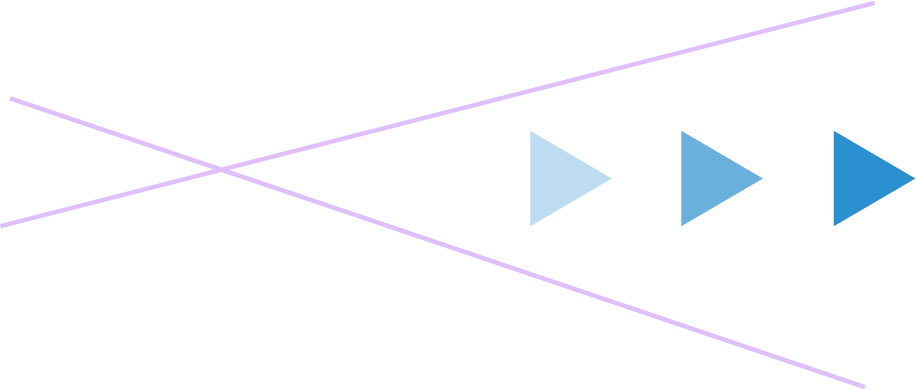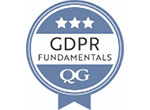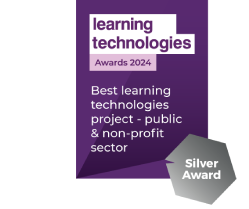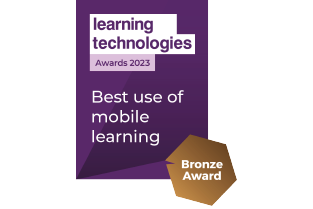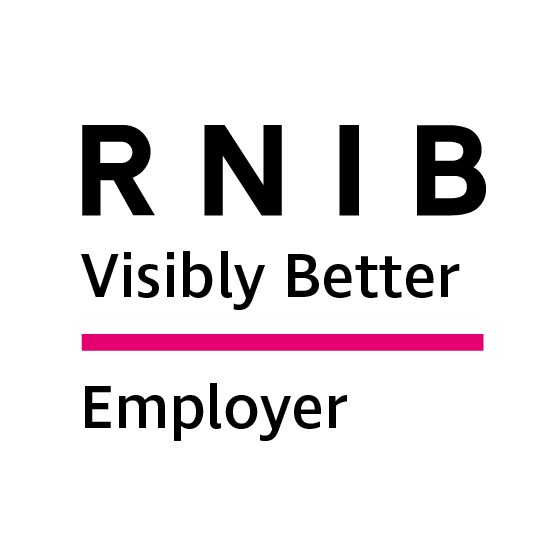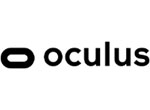Home / Thinking Zone / Predictive Analytics: Crystal Ball or Rear-View Mirror?
Predictive Analytics: Crystal Ball or Rear-View Mirror?
If you could find out what your future holds, would you want to know?
There have been numerous studies exploring this thorny issue, with more people not wanting to know the future than those who do - and yet low-grade prediction is everywhere; it’s part of almost every advertising campaign and an essential component of our everyday chatter:
‘I bet he’ll call you…’
‘I reckon you’ll get that job…’
‘Probably by that stage we won’t need a car…’
Whatever the casual prediction is, it’s often based on a proverbial ‘soup’ of what has gone before, general observation, judgement, background assumptions and hunches. We don’t even think about some of the things we predict and whether this is via experience or some sort of complex intuition, it can all seem difficult to untangle - often an educated guess is all we have to go on.
Sometimes we are right, sometimes we are wrong.
Posted 29 March 2024
As a key part of Learning Analytics, Predictive Analytics looks to the past to predict the future and as such, is utilised within several industries including (but not restricted to) education, healthcare, criminal justice, the weather forecast, event planning, betting, finances and holidays. We base a lot of our decisions, consciously and unconsciously on predictions, and depending on the situation, whether they come true or not can be trivial or life changing.
Whilst Predictive Analytics can be very useful for lots of reasons, they only ever create a future by looking backwards. From this, there are many branching questions around creative choice, personal freedom and ethics, as well as philosophical themes such as the nature of epistemology and aspects of determinism – are our choices predetermined or do we have free will? In almost every case, Predictive Analytics are steering us towards outcomes which may or may not be our true intention. When does ‘assisted’ planning become something more?

Before we discuss Predictive Analytics in more depth, let us first indulge in a little bit of digging around the tantalising fascination we seem to have with prediction… why are some of us so invested in wanting to know the future? Psychologists would say that attempting to know the future might give us a sense of control over the unknown, perhaps to lessen the uncertainty around future events and/or feelings. Perhaps, as the only (proven) species who knows they will die one day, our desire to know the future is largely connected to an existential angst – and a sense of peace might be gained by knowing what was around the corner. Although, on the flip side, what if ‘predictions’ became a negative self-fulfilling prophecy?
Futurist, Thomas Frey of the Da Vinci Institute says this:
‘Once a future is known, we quickly lose interest in trying to influence it. If we knew the future, we would have little reason to vote in an election, host a surprise party, or begin a new project. For this reason, our greatest motivations in life come from NOT knowing the future’.
However, some would say that planning for the future by making predictions is essential in order to live a happier life – and even more effective if you actively engage with your ‘future self’ by projecting positive predictions onto him/her/them. Whilst this is a slight deviation from the notion of prediction per se, the idea that deeply engaging with a future ‘you’ could lead to greater happiness, was the research area of UCLA’s Hal Hershfield and has intriguing parallels with our sense of destiny and attitude to change.
Hershfield was inspired by moral philosopher Derek Parfit , (who in turn had been influenced by the writings of Joseph Butler) and his research centred around the idea that a disconnection from our future selves was responsible for ‘irrational’ behaviours, including not saving for retirement. Hershfield devised a simple diagram which showed overlapping circles depicting how connected our current selves were with our future selves, with those who connected strongly to their future selves (via a letter or even Virtual Reality), feeling more optimistic about the future.

Whatever your perspective on predicting the future, the global psychic prediction industry is worth millions, and whilst some may regard certain practices as unreliable, pretty much everybody reads their horoscope, albeit with varying degrees of investment!
There are different opinions on when the earliest evidence of predictive practices (such as astrology and reading animal entrails) were, but it is commonly thought that Babylonian astrology was the first organised iteration, arising in the second millennium BCE. Earlier references to hepatoscopy (liver entrails), omens and oracles can be seen in the Sumerian clay tablets of Mesopotamia and it is well documented that the Ancient Egyptians had a rich and complex tradition of divination and prophecy, with priests and priestesses interpreting dreams, consulting the ‘heavens’ and oracles to gain insights into the future. Divination practices were intertwined with belief in the gods and other supernatural forces, and the resulting insights would often become part of decision making by the rulers of Ancient Egypt. One notable example of this is the Dream of Stele, also known as the Sphinx Stele, which tells the story of a young Prince (Tuthmosis), who fell asleep near the Great Sphinx of Giza and dreamt that he was promised the throne of Egypt in return for clearing away the sand around it.
We see astrology being part of many other cultures throughout history – Chinese, Indian, Islamic, Greek and Roman cultures all utilised various forms of astrology which were intertwined with decisions around farming, marriages, births and deaths; in African culture there is also a long and rich tradition of divination practices which influenced daily life.
In short, it seems that the whole world has, as part of its history (and to varying degrees its present) had a reliance on the role of prediction.
There is currently no contemporary global study into the statistics for belief in the supernatural or for consulting a psychic, but recent studies have shown that 3 out of 4 Americans profess to have some sort of psychic belief and at least 10% of the British population have consulted a medium. Anecdotally there appears to be a growing interest in predicting the future via a psychic practitioner, with many online businesses reporting a boom since the coronavirus pandemic. The growth and acceptance of technology in recent years has also expanded the industry, with the largest online database of Mediums (Keen) reporting 14 million satisfied customers.
In 2021 the UK census for England and Wales reported for the first time that the amount of people identifying as Christian or visiting a church had fallen below 50%, making it a minority religion for the first time since records began. This, together with a number of churches closing across Britain, perhaps points to a proverbial ‘gap in the market’ in terms of people being desirous of some kind of spirituality in their lives, and yet identifying as having ‘no religion’.
However, before this discussion grows ghostly arms and legs, let us return to the matter at hand (Predictive Analytics), against a backdrop of curiosity around the conceptual issues on prediction.
Predictive Analytics is a major component of Learning Analytics, which describe, predict and explain student learning so that improvements and decisions can be made.
Within education the goal of improving teaching methods and therefore the learner experience is key, and Learning Analytics as a field has grown in recent years (1990s onwards) since the increase in online learning, particularly in higher education. Learning Analytics can capture student data when they use online resources such as an LMS, and this can be made available for analysis. The amount of time spent on a task, the number of clicks, social networks and navigation patterns can all be tracked and the huge uptake of MOOCs (massive open online courses) has afforded additional data for researchers in the field, enabling insights and evaluation of teaching, learning and online environments.
The benefits can be huge – the personalised learning which is often afforded through Learning Analytics enables the individual needs of each student to be tailored and met – which in turn can foster deeper engagement for the learner. Organisations and teachers can measure the effectiveness of their courses, which encourages continuous improvement, whilst data-driven insights can inform decisions about curricula, content design, resource allocation, and training/educational strategies.
Analytics can help in aligning training/educational programs with future industry roles by analysing the trends and skills needed within the job market in various industries – which can be particularly useful in many areas. Where there is evolution in job roles there is a place for Learning Analytics because continuous training in professions such as manufacturing, healthcare, the public sector, engineering, and many more, require an understanding of the effectiveness and impact of training from the learner’s perspective.
Within Education, Predictive Analytics are applied via algorithms to forecast future student performance, behaviour and results based on previous data and patterns.
It can provide insights into future educational outcomes and even facilitate proactive interventions to support student success by identifying trends, engagement, patterns in data and historical information. It has often been associated with helping to identify learners who are struggling with their studies or at risk of falling behind via early detection and timely intervention.
However, Predictive Analytics assume that patterns in past data can reliably predict future learning outcomes, and for this reason, the epistemological concept of ‘what we know’ comes under scrutiny, challenging our assumptions on the nature of knowledge itself.How do we know what we think we know? And how do we know that the underlying predictive models we are utilising are valid in their results? Any predictive algorithm can be wrong simply because humans can be wrong.
Ethically speaking, how do we know that evaluating an ‘at risk’ student via Learning/Predictive Analytics isn’t limiting them or labelling them with a condition or (dis)ability which isn’t permanent or accurate? As an example, this might potentially lead ‘at risk’ students down a path which isn’t right for them whilst simultaneously taking away their autonomy – and all because of an algorithmic prediction.
Would imposing a possible future for students via Predictive Analytics enable more engagement and choice or kill the creative spark of originality?
It could be said that one of the joys of learning is the individual journey of discovery that can come from unexpected sources (in addition to conventional learning pathways), and these can sow the seeds of inspiration and embedded knowledge. Whilst it is undoubtedly helpful to have guidance around next steps and trends, the philosophical danger is that our future selves are being judged via our past selves and the potential ‘spark’ of originality is not fostered – or at worst, destroyed. We should all be allowed to follow tangents.

Perhaps there is also a bigger discussion to have around the purpose of education. This might be out-with the scope of Learning Analytics in this context, (what were we just saying about tangents…?) but it could be that whilst for some people, education is a means to an end, for others it should have the potential to optimise several outcomes which prioritise creativity and personal growth. Much as it is important and often essential to gain qualifications to get a job to earn money and live within society, maybe there is also a dream of education which goes on throughout our lives to help us to keep our curiosity, mental agility and capacity to flourish. How much does the predictive model actually restrict the sense of the ‘new’ and surprising journey that life (and education) can take us on?
As mentioned previously, Predictive Analytics are not just used within education
One area where ethical concerns around the use of data collection and predictive algorithms have been particularly controversial is within the criminal justice system. High stakes Predictive Analytics are viewed suspiciously by many because of potential biases and/or failures, potentially resulting in false imprisonment or even death.
In his TED Talk on the dangers of algorithmic ‘justice’, Hany Farid, Professor of Digital Forensics and Human Analysis at Berkeley University, discusses how a 2016 study found that a predictive algorithm for crime was biased against black people; and how there are a worrying number of ‘Minority Report’ style arrests which are being reported within the US. The UK is also currently trialling 'predictive policing' , with many forces using a ‘Harm Risk Assessment Tool’, which enables machine learning to predict how likely an offender is to re-offend within the next two years. The ripple effect of exacerbated bias within any sector is troubling, but perhaps nowhere more so that within the criminal justice system.
However, many others, particularly in healthcare, are more positive about the use of Predictive Analytics, where rapid advancements are saving lives. Dr Philip Wells, after whom the predictive 'Wells Models' for DVTs and Pulmonary Embolisms were named, is a leading expert in haematology and has shone a positive light on Predictive Analytics in the prevention of unnecessary and invasive testing for patients. Wells and others are advocating for a future where predictive analytics become an integral part of clinical practice, empowering clinicians to deliver more personalized, proactive, and effective care to patients.

It seems then, that whatever sector they are used in, predictive models imply a degree of philosophical determinism because future outcomes are based on past events or information. This conceptual alignment challenges notions of free will (or indeterminism), and suggests that human behaviour is ultimately predetermined by pre-existing factors rather than by conscious volition.
However, as with most things, perhaps there is a middle way. So-called Compatibilism (suggested by philosopher William James in his Dilemma of Determinism paper, 1884), offers a more nuanced perspective on the relationship between determinism and free will by highlighting the complex interplay between moral agency, mental states and circumstance. It acknowledges the influence of external factors whilst allowing for autonomous action and rationale.
So, let us end where we began, and admit that sometimes we are right and sometimes we are wrong… and imagine for a moment that your life was to be treated in the same way of Predictive Analytics – how do you think your past would predict your future?
Get in touch
If you have enjoyed this content from the Thinking Zone or would like to pose a question to our Creative Thinker in Residence then please do get in touch below or follow us on LinkedIn or Instagram – where you can join in with our new Question of the Month!
